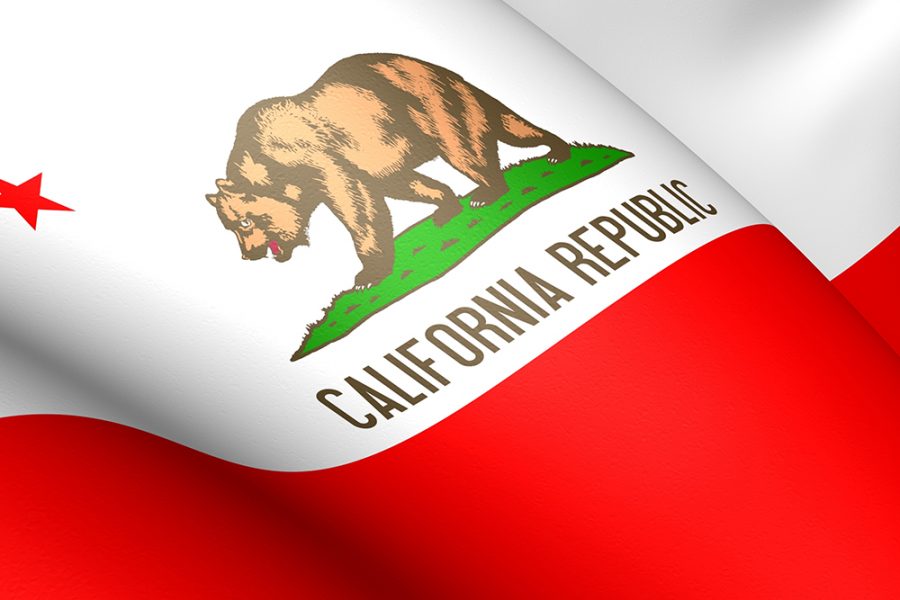There’s no shortage of stories. A woman and her boyfriend who moved from California to Montana in 2020 “changed their licenses right away.” In “the most competitive race in recent memory” for the mayor’s office in Boise, Idaho, one candidate “ran on a very simple platform,” the Los Angeles Times reported, and that was: “Stop the California invasion.” The Republican governor of Utah has straight out said “We would love for people to stay in California.”
Gary Galles, a Washington native, has been a Pepperdine University economics professor for more than 30 years. His California residence goes back to the 1970s when he was earning the first of his pair of degrees from UCLA. He remains in the state, but he has friends who have left who’ve told him they “made a point of changing license plates ASAP” after resettling. Galles also recalls an experience from a 2021 trip that stands out to him.
“The person filling up our truck in Oregon said, ‘You’re from California, huh? I love Californians. And now that I’ve got your money, please go away.’”
Wynona and David Rowe left Ventura County three years ago for Bella Vista, Arkansas, near Walmart’s Bentonville headquarters, because, one, it’s too expensive to retire in California, and, two, “the politics got to be ridiculous,” David said. When meeting their new neighbors, Wynona said the couple, who replaced their license plates right away, felt compelled to assure those who asked “where are y’all from?” that “we’re not the crazy ones” from California.
Their flight from the coast coincided with the growing COVID-19 panic, which added a couple of layers of complexity to their move, both directly related to California’s pandemic response. Would they even be allowed to go? And would they be considered “unclean” upon arrival? A “rumor was spreading,” said Wynona, “that Californians were spreading the disease. If you recall, California shut down travel. You had to have a reason you were on the road. Pretty frightening.”
“Fear” that Californians moving in will ruin the neighborhood has been around for decades. A 1979 Washington Post headline proclaimed that “To Most Idahoans, A Plague of Locusts Is Californians.” In that seemingly more-innocent era, Idahoans were worried that “the migration of Californians” would turn their state “into a mass of freeways, parking lots, hamburger stands, nudist colonies, high-rise developments, tract houses and neon billboards.”
However, in the 2010s and 2020s, the resistance to Californication – a term that was not coined in just the last four or five years or came to the Red Hot Chili Peppers in a burst of psychedelic of creativity but has been around for more than five decades – is not only different, it feels as if it’s trending sharply upward. This is especially evident in the conservative media. Just as the Rowes felt they had to explain they weren’t California crazy, transplants are at times finding it necessary to take a defensive position when interacting with locals.
Matthew Cooper, a truck driver from Sonoma County, bought property in Montana, said he “wanted to move to a state with more right-leaning politics that matched his own,” SFGate reported in 2021. Despite his desire to lose his California-ness and blend in in a culture he preferred, he “encountered people that are hostile toward another Californian moving in.”
Apparently he learned how to disarm those who see him as a gatecrasher.
“I say yes, I’m from ‘Commiefornia,’ but don’t worry, I’m not bringing any of that crap up here. I’m escaping it. Then everything is fine. There is a lot of opposition to people bringing the politics from here to there.”
Are California refugees, like Cooper, being prejudged and punished for license plates and the blue state policies they didn’t support? It’s a fair question.
A Berkeley IGS Poll taken in September 2019, prior to California’s rigid pandemic policies and the recall fever struck, provides some insight. It found that the second most common reason cited by voters for wanting to leave the state was high taxation, following only housing costs. “Political culture” was the third most common reason, with 46% mentioning it as a main cause. Those who consider themselves “very conservative” or “somewhat conservative” are three times more likely to seriously consider leaving than those who say they’re “very” or “somewhat liberal.”
While it’s a story that whips up national attention, the California exodus of business and residents is only just a part of this country resorting itself. As National Public Radio noted a year ago, “Americans are fleeing to places where political views match their own.” The country “is growing more geographically polarized — red ZIP codes are getting redder and blue ZIP codes are becoming bluer.”
Texans, Floridians, Montanans – all those who are wary of their new neighbors from the Left Coast – might want to consider that the family from Los Angeles that just in moved down the street, or the retired couple from just outside of San Francisco who now live a few blocks – or maybe quite a few miles – away are there not to Californicate the locals’ way of life, or to tell them “this is how we did it in California,” but to get away from big and getting bigger government in Sacramento, and in the state’s big cities and populous counties.
One other factor to consider: The more California refugees are accepted in other states, the more the pressure builds on the Golden State political class to change the policies that are driving people and businesses away. California can again be a state people want to move to, not move out of.
Kerry Jackson is a fellow with the Center for California Reform at the Pacific Research Institute.


